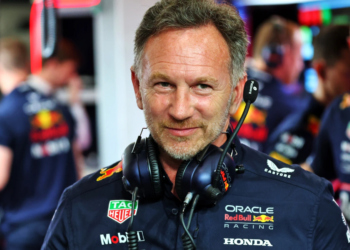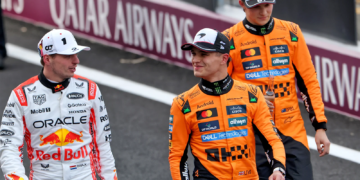Dreaming of a career in Formula 1? It’s not just about speed and adrenaline; it’s also about having the right educational background. Whether you aim to be on the track or behind the scenes, certain degrees can propel you into this high-octane world.
Now, figuring out which degree best suits your Formula 1 aspirations can be a bit daunting. If you’re feeling overwhelmed while trying to write your college applications, reaching out for support can make a big difference. Services that can help me write my essay provide the guidance needed to articulate your passion and goals effectively. Let’s dive into the degrees that can help you make your mark in Formula 1 racing.
- Mechanical Engineering
A degree in Mechanical Engineering is foundational for anyone aiming to work in the technical side of Formula 1. This program provides extensive knowledge of vehicle dynamics, thermodynamics, and material science—all crucial for designing and maintaining high-performance race cars. Engineers with this background are typically involved in developing systems and components that improve speed, efficiency, and safety.
Mechanical engineers in Formula 1 collaborate closely with teams of specialists to apply their theoretical knowledge in practical settings, often pushing technological boundaries to find competitive edges. As innovations continue to emerge, these professionals must stay on the cutting edge of technology and techniques, making continuous learning and adaptation a core part of their careers.
- Aerospace Engineering
Aerospace Engineering is another pertinent degree for those interested in the aerodynamics aspects of Formula 1 racing. Students in this field study airflow dynamics, control systems, etc. This knowledge is directly applicable to racing, where optimizing the aerodynamic performance of a car is critical for achieving top speeds and maintaining stability at high velocities.
Graduates with this specialization may focus on designing parts like wings, spoilers, and other components that manage airflow around the vehicle to reduce drag and increase downforce. Working in this capacity requires a keen eye for detail and a strong propensity for innovation, as even minor adjustments can lead to significant changes in a car’s performance.
- Automotive Engineering
Automotive Engineering is tailored specifically to car design and production. This degree dives deep into the specifics of automotive systems, including propulsion, electrical systems, and fuel technology.
Professionals with an automotive engineering degree often work on improving engine efficiency, vehicle electronics, and suspension design, which are pivotal in Formula 1. They work at the forefront of automotive innovation, where they implement new technologies to enhance vehicle performance and efficiency in a competitive environment.
- Computer Science
In the age of digital technology, a Computer Science degree is increasingly valuable in Formula 1. Advanced simulations and predictive models are used extensively to test car designs and strategies without the need for physical trials, saving time and resources.
Computer scientists in Formula 1 may also develop software for real-time telemetry systems used during races to monitor car performance and make quick strategic decisions. This role requires a combination of technical expertise and strategic thinking, as the data provided can often influence split-second decisions on the track.

- Physics
A degree in Physics is critical for understanding the fundamental principles that underpin many aspects of Formula 1 racing, from engine mechanics to tire friction and car aerodynamics. Physics graduates bring a deep understanding of the forces and motions at play in high-speed racing, which is essential for optimizing car performance and safety.
These professionals may engage in research and development, where they apply their knowledge to solve complex problems in innovative ways. Their work ensures that the theoretical underpinnings of the car’s design are sound and that they perform as expected under race conditions.
- Sports Management
For those interested in the business side of Formula 1, a degree in Sports Management can open doors to various administrative and operational roles. This program covers the key areas of the commercial side of Formula 1. Graduates understand the logistics of organizing races, managing teams, and promoting events to global audiences.
Professionals with this background might work in team management, event coordination, or media relations, ensuring that the spectacle of Formula 1 continues to thrill fans around the world. Their work supports the sustainability and growth of the sport from a business perspective.
- Marketing
A Marketing degree is invaluable for promoting the global brand of Formula 1. This field studies market research, digital marketing strategies, and consumer behavior—all crucial for engaging fans and sponsors. Effective marketing drives the sport’s popularity, ensuring it remains financially viable and globally recognized.
Marketers in Formula 1 create compelling narratives around drivers and teams, manage digital campaigns, and engage with fans across multiple platforms. Their efforts keep the sport in the public eye and maintain its reputation as the pinnacle of auto racing excitement.
Conclusion
Embarking on a Formula 1 career is an exhilarating prospect for many, and choosing the right degree is a crucial step towards achieving this dream. Whether your interest lies in the engineering, data analysis, or business side of the sport, each of these degrees provides a unique set of skills and knowledge necessary to succeed in the fast-paced world of Formula 1. With the right education and a passion for racing, the possibilities are as limitless as the tracks are long.









